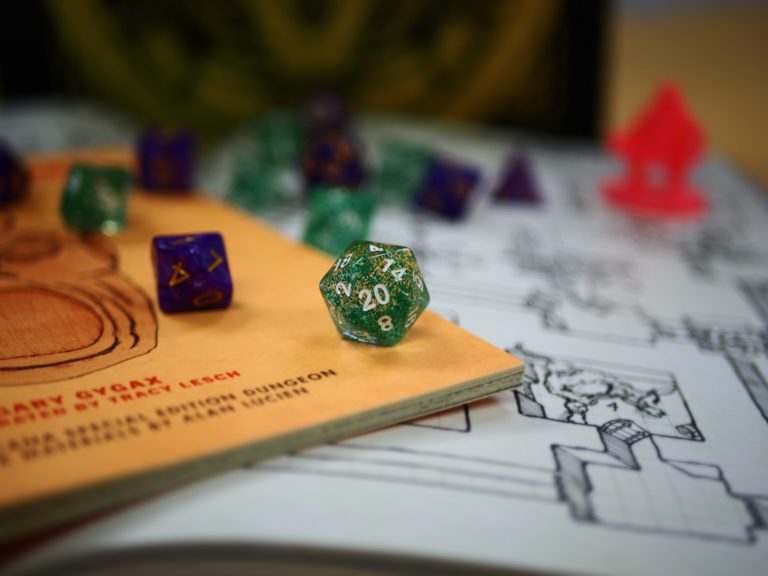Mastermind 5E Guide | Mastermind Rogue Handbook for 5E
In every party, there’s a character who needs to pull the strings. A puppetmaster, able to influence fights and people with a mere word. In many cases, that’s a spellcaster’s job. But, with this archetype, a Rogue can take over. The Mastermind is a spy, focusing more on influencing people than stabbing them. They work in the face of their enemies, slowly working secrets out of them without them even realizing they’re saying anything wrong. But… How good could this be in a dungeon? Let’s find out, in our Mastermind 5e Guide.

Table of Contents
Plan Every Move: Mastermind 5E
The Mastermind Rogue is a strange beast. Theoretically, the Mastermind is designed around being a superb espionage character that specializes in talking. Instead, this rogue archetype becomes a bizarre support character with some anti-divination effects. In an intrigue – or non-combat oriented – campaign, some of your abilities will make more sense. But, if you’re not in that situation, then you’re relying nearly only on the Rogue’s class features, to a degree that no other archetype can claim.
Master of Intrigue
You know, at level 3, it’s pretty hard to say you’re a “master” at anything. But the Mastermind’s cocky!
When you choose this archetype at 3rd level, you gain proficiency with the disguise kit, the forgery kit, and one gaming set of your choice. You also learn two languages of your choice.
Additionally, you can unerringly mimic the speech patterns and accent of a creature that you hear speak for at least 1 minute, enabling you to pass yourself off as a native speaker of a particular land, provided that you know the language.
That’s 5 proficiencies – 6 if you count mimicry – in one class feature. That’s a lot! Shame that most of them won’t matter. So, let’s talk about when you can use these. Disguise kits are good. With Intelligence, Wisdom, or Charisma, you can make some great disguises that might give you a tactical edge. You can even use disguise kits in traditional dungeon crawlers; you can take out a scout, disguise as them, and return to the camp to get the jump on your enemies who think you just returned from your rounds. Or you can apply a disguise to get into a party without stealth. That’s not bad for you.
Forgery kits? A little rarer. In a dungeon crawler, that’s next to useless. But, if you need paperwork to enter a city, then a Dexterity or Intelligence check will get you far. Or, at least past the gate. The gaming set is basically worthless. You could theoretically make money off of your proficiency at dice, but that money’s probably not gonna get you any magic items anytime soon. You could make really cool moments (Dragon about to kill you? How about a quick game of dice?), but most of those will require a Deception check anyways. This one’s the farthest stretch.
Two languages are nice, but Comprehend Languages is a Ritual cast, and Tongues is in 2 levels from now. Take 2 languages that are good for your region, but… despite how hard it is to learn languages in 5e, it’s still just as easy to cast a spell and know them.
The mimicry stuff is fun, but realistically unimpressive. If you’re disguising as a specific person and you learned their speech patterns, then your DM might give you advantage if you get caught looking like them. That’s… probably the best you’ll get out of this ability. Cool proficiencies, and if you’re creative, you can get great use out of them. Just… make sure your DM likes to have fun before throwing all of this at them.
Master of Tactics
Oh, so now you’re the master of two whole things at level 3? My word, what a quick learner!
Starting at 3rd level, you can use the Help action as a bonus action. Additionally, when you use the Help action to aid an ally in attacking a creature, the target of that attack can be within 30 feet of you, rather than 5 feet of you, if the target can see or hear you.
This is… pretty great! If you didn’t know, the Help action gives advantage to an ability check, or the first attack roll an ally makes in a round. They need to use it before the start of your next turn.
Cunning Action at this level is primarily for mobility; dashing up, disengaging, and even hiding to an extent. If you don’t need to move around the battlefield or position yourself, then you can instead spend a bonus action to give someone advantage. This is great if you have a Paladin with Smites, a Barbarian with Rage, a Sorcerer with Disintegrate or – gods preserve you – another Rogue with Sneak Attack. The additional range on this ability also means you can be a good bow build and still support your allies through bonus actions.
Now, the problems are twofold. First, you are spending a bonus action to do this. That means no more Cunning Actions or Two-Weapon Fighting, if you want to grant advantage. Not a huge problem for the ranged sneak attacker, but melee Rogues lose that additional chance to get their sneak attack off. Second, you’re the rogue here! If only you could give yourself that advantage… but you can’t. That means you almost have to build a team comp around Master of Tactics to get good use from it – Fighters and Monks don’t benefit much from Help, since they want to make multiple, small attacks.
Still, this is really efficient, and usually pushes you towards a ranged build. Try to coordinate with your party during character creation if you plan on going Mastermind, since – spoiler alert – this is kinda it for your combat abilities!
Insightful Manipulator
At level 9, you get the ability to size up the social chops of your conversational partner. After spending 1 minute talking to someone, you get 4 (possibly 5) pieces of information about them. The first 4 are made compared to you; the DM says these stats of theirs are inferior than, equal to, or superior to yours.
Intelligence score
Wisdom score
Charisma score
Class levels (if any)
Then, the DM can add an optional piece of information;
…you might also realize you know a piece of the creature’s history or one of its personality traits, if it has any.
Right away, this gets thrown in the trash in traditional dungeon crawlers. Sure, you might get to know if your quest giver is actually a spellcaster, but this ability is extremely non-specific and doesn’t help much; Unless you really boost your mental stats, any spellcaster will just be “superior” in probably all 3. Sure, if a Lich is disguised as a Farmer, you’ll be getting some hints really fast about it, but that doesn’t make them easier to fight. And who’ll believe you?
In an intrigue campaign, this gets a little better. If your goal is to locate a vampire in a ballroom, then you can use the Class level part to your advantage; hopefully, not too many guests are 10th level adventurers! You still have a problem in that your mental stats just aren’t gonna be that high, unless you nab all of the Stat items from the party beforehand!
More interesting is the bonus information. While maybe it’ll be hard to tell who a Werewolf is from stats, if you know the man goes into the woods every Full Moon, then you might have a suspect. Or if you know the rich lady that you’re talking to was a peasant 2 weeks ago, then perhaps she was the one who made a pact with a demon.
This is a fun metagame ability, but it’s going to be hard to use. Be ready for that!
Misdirection
Misdirection is the final combat ability that the Mastermind gets. It’s in no way bad! But… once again, it requires a lot of party planning to make good use of.
Beginning at 13th level, you can sometimes cause another creature to suffer an attack meant for you. When you are targeted by an attack while a creature within 5 feet of you is granting you cover against that attack, you can use your reaction to have the attack target that creature instead of you.
At level 3, I recommended a ranged build. This ability somewhat tosses that in the trash. Try not to use your allies as cover to make this ability work. Sure, you can have the Paladin take the hit instead of you… But, if the Paladin is giving you even half cover, then that +2 to AC is gonna make your AC somewhat competitive with them. And if someone is trying to hit you with a Reach weapon, then they’ll probably just scoot around the paladin to try and avoid cover.
If you really want to do ranged, then you can sit behind a backline (like a Ranger) and have them take the hits for you. But, once again, your AC is probably comparable to theirs. This ability doesn’t really negate damage; it just shuffles it to someone else down the line. If you’re low on health, then that usage of Misdirection can save your life, but it’s extremely inconsistent.
So, this ability must be there to be used to cause an enemy to hit another enemy. That’s tricky, but it could work. Say a cultist is fighting you and you strategically put them between you and an enemy caster. Then, if the enemy targets you with Chaos Orb while the cultist is giving you cover, you can have them get crushed instead of you. That’s value – it negates an attack and potentially damages your opponent! It incentivises a melee playstyle, since you can sometimes maneuver melee enemies to be between you and a ranged opponent.
Now, your Master of Tactics should be used to allow your Casters to crush important targets while you sneak attack enemies that are in between you and the caster. That’ll keep you safe once per round, at least! Consider picking up proficiency with a Reach weapon (like a Whip) if you want to duck behind the Paladin during boss fights.
Soul of Deceit
And finally, you’ve reached level 17. You… you may want to consider multiclassing, like… 4 or 5 levels.
Starting at 17th level, your thoughts can’t be read by telepathy or other means, unless you allow it. You can present false thoughts by making a Charisma (Deception) check contested by the mind reader’s Wisdom (Insight) check.
Additionally, no matter what you say, magic that would determine if you are telling the truth indicates you are being truthful if you so choose, and you can’t be compelled to tell the truth by magic.
Am I overreacting? Sure. Would you still be better off with some levels in Paladin or Fighter? Probably.
So, this ability makes you immune to two things; Mind Reading and Zone of Truth. Currently, the only spell that really reads minds is Detect Thoughts, and that is the most common usage of that effect. Detect Thoughts is really strong… when PCs use it. Enemies get significantly less value out of it, though this can let you hide important secrets. In addition, there are several other creatures that can gain benefits from reading minds. Hilariously, if you allow your thoughts to be read and they succeed on the Deception check, you might accidentally let them read your real thoughts. Make sure to switch Soul of Deceit back on fast! Especially if your DM is a stickler for that kind of thing.
The second ability has a problem. There are an extremely limited number of options for truth spells, the most significant being Zone of Truth. There’s a problem, however:
Zone of Truth doesn’t force you to tell the truth. It just forces you to not lie.
The wording of Zone of Truth actually makes it dodge the only thing that Soul of Deceit’s second paragraph does. Talk to your DM about this, since this is an absolutely brutal clause; this ability is worthless if it can’t defend you against the single magic effect that has relations to truth. It realistically should.
Both of these abilities are problematic, since they only counter a handful of spells and special abilities. And one of them might not even do anything, without DM intervention or item creation!
Best Race for Mastermind Rogues
The Mastermind Rogue is one of the very few that basically says “No specific mental skill… but all of them would be nice.” Get your Dexterity to 20 ASAP; that’s your attack and damage, and you’ll still want to be using that Sneak Attack whenever you can. Charisma seems like it’s the most valid mental skill for you, since it’d better let you talk to people for a full minute. But, Constitution is possibly better, allowing you to survive melee combat easier.
Lightfoot Halfling
Who better to pull the strings than a Lucky fella? Lightfoot Halflings are one of the better short characters in the Player’s Handbook. +2 Dexterity, +1 Charisma is exactly what you were looking for. Lucky is just fantastic, Nimble is good for getting creature-based cover, and Brave is… Brave. Lightfoots can also gain stealth behind the very creatures that they’re scurrying underfoot! That’s a two-for-one deal! Besides, it’d be hilarious to have this Halfling knowing everybody’s move and becoming the party leader.
Half-Elf
A different kind of half, the Half-Elf is a pretty stellar choice for your Mastermind experience. +2 Charisma might not be perfect, but getting +1s in Dexterity and Constitution certainly is! Darkvision and Fey Ancestry are useful utility tools for any rogue; seeing in the dark without a torch being nearly essential! Skill Versatility is the real important one. At level 3, you get a bunch of proficiencies, but this archetype wants to be able to talk, lie, investigate, sense motives, see hidden things, and maybe even intimidate! With Half-Elf, it’s simple to get all of that at once.
Best Feats for the Mastermind Rogue
You’ve got a lot of feat options that work for the Mastermind Rogue. Of course, whether or not sacrificing your ASI is worth it to get more of them is up to you. This subclass is in a weird place where you need dexterity and charisma, so you’re spread pretty thin. However, the following feats might make sense for you.
Magic Initiate
Mastermind is a rough subclass, and adding a touch of magic is one way to expand your options a little. This feat gives you two cantrips and a 1st level spell from the bard, cleric, druid, warlock, or wizard lists. While there are plenty of good options here, I particularly like taking the Guidance cantrip to boost your chances of successfully manipulating NPCs.
Observant
Another feat that is especially thematic is Observant. You get to boost your Intelligence or Wisdom by one, which isn’t that helpful, but the real benefit is a boost to your passive perception and investigation scores. What’s more, you can read lips of anyone speaking a language you understand, which is both an underrated – if niche – ability while also perfectly on theme.
Mastermind 5E FAQ
Does Soul of Deceit Foil Dominate Person?
The rules as written do not spell out how Soul of Deceit and Dominate Person would interact. From a reading of the feature, it seems as though Dominate Person could not force a Mastermind to tell the truth. However, there are other ways around it by commanding the dominated person to take actions that might give away the truth. For example, a dominated mastermind would probably follow the command “lead me to the hidden treasure.”
What Book is the Mastermind Rogue in?
You can find the Mastermind Rogue in Xanathar’s Guide to Everything.
Conclusion – Our Take on the Mastermind 5E Rogue
The Mastermind’s a rough one for the rogue class; it has very low combat power, and it’s out-of-combat abilities aren’t always spectacular. Consider looking at the Inquisitive Rogue before cementing yourself on this class for any sort of modern or intrigue campaign. If you’re wanting a Rogue that can identify threats and occasionally cause a random melee combatant to eat Ray of Enfeeblement… then here you go! Otherwise, you’re not looking at the most stellar archetype around.






